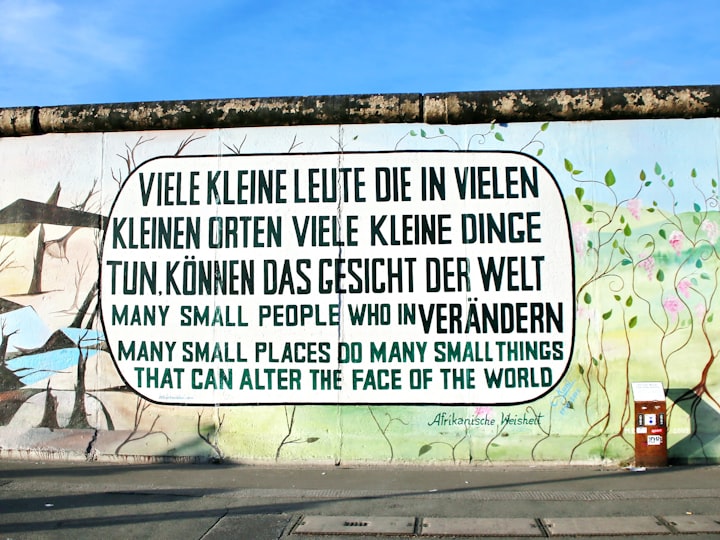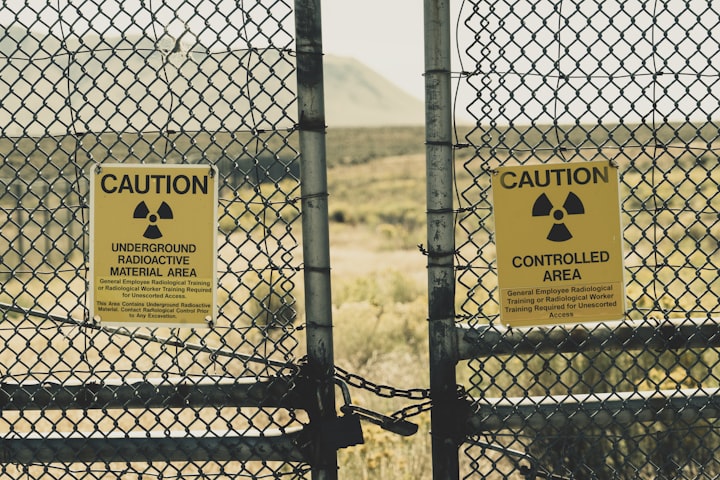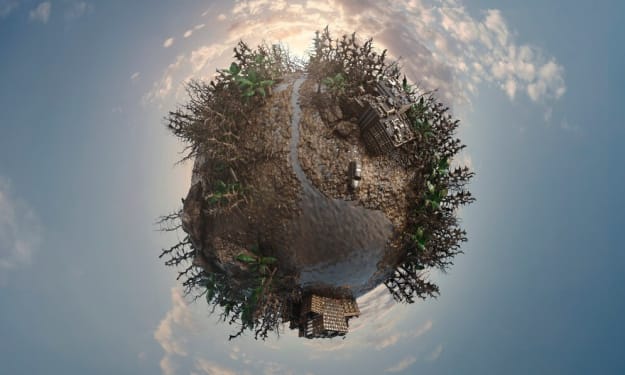Little Conversations.
The leadership of big change through small acts of kindness.

Change is the only constant in life ~ Heraclitus, Greek Philospher.
From evolution... to ageing... to new life. Change indelibly shapes the human experience.
In fact, it is so pervasive and intrinsic to how we live, you would think that we should be absolute masters in the art of changing.
So, why is it that when faced with life's urgent need to change for the sake of our planet, so many of us stick our heads in the sand?
Gus Speth, American Environmental Lawyer, and founder of The Natural Resource Defence Council, described the real problem in the climate crisis was humanity's selfishness, greed, and apathy.

Is that it?
Is the world simply full of bad people?
Maybe - or perhaps there is more to it than meets the eye.
Let us back it up a bit and consider what change is and what it means to human beings.
We can use a simple thought experiment to help...
Today you are a day older than you were yesterday.
Over the last 24 hours you have changed.
You will never be the person you were yesterday... ever again.
The best that can be said is you are that person plus the experience of one day. No matter what the experience of that day was - good, bad, or indifferent... you will never be that person you were again.
That's a bit sad isn't it?
Saying goodbye to the person you were yesterday.
Perhaps, like me, when you think this through you sigh a tiny sigh. A tiny sigh of melancholy; the recognition of the passage of time and the inevitability of age.
*sigh*
If we consciously think about our lives we can find these tiny sighs of grief embedded into many of our activities.
That great meal that we just ate *sigh*
That book we finished *sigh*
Your child's most recent birthday *sigh*
Each of these are good times in our life yet we, instinctively, grieve their passing.
Change hurts because with every change, we lose something we once had, or once were, and that loss causes grief.
Perhaps this is why Buddhists have the following proverb:
Pain is inevitable; Suffering is not.
Because...
If change is constant... pain is truly inevitable.
None of us are immune.
Further, humans are hard-wired to avoid pain wherever we can. It is part of our survival process. We come across a threat to who or what we are and we ready ourselves to battle against it or fly away from it.
We must literally supress our biological imperatives to make necessary changes.
Quite a big ask that.
So....What do we do?
The climate crisis is here.
We MUST make changes.
Essentially, we have 2 options:
Option 1:
We could threaten each other so that the threat of not changing is greater than the threat inherent to the change itself.
We could tell people they are selfish. We could tell them that they are stealing the future. We could make everyone that refuses to change feel bad about their inertia.
Would that get us to the change we need?
Unlikely.
There are examples through history where bombs have literally been falling from the skies and people would not change how they lived to ensure their safety. The classic example is London during WW2 when the government built temporary housing away from the city for all Londoners to live in to keep them safe from air raids. Many people refused to leave, they could not face changing their life and how they lived despite seeing their neighbours die.
It wasn't just a London phenomenon either. It happened in many other European cities. Londoners simply added the soundbite "Keep Calm and Carry On" which is why the particular story endures.
And... moreover... it endures with a sense of pride. They held their ground regardless! Well done them!
Super.
People were dying, because bombs were falling - still no change.
Option 2:
We recognise the fear inherent to change and loss and we do what we always do when we see another person in the throes of grief. We care for them and support them to make the change.
When I think of these two options I often think of Aesop's fable of the wind and the sunshine. In the fable the two weathers had a competition to see who could persuade a person to take their coat off. The wind howled and roared to try to take it by force, but the person clung onto it with all their might. Then the sun came out and simply glowed and the coat came off as a result.
The lesson of the fable - Love is always more persuasive than hate.
So, I try to be like sunshine.
When I find people resistant to change, rather than exacerbate their suffering with lectures and condemnation, I help them through it however I can.
Let me give you an example:
At Christmas my shop changed from a traditional Christmas tree to a sustainable, recyclable, cardboard version.
Here it is..

In making the change it was seen by many that a little bit of Christmas was being stolen... and the change stung.
One person even said to me...
"oh I have had enough of climate change now... I mean, what am I going to have to give up next?"
The pain was clear to see. A little part of their Christmas joy - a fully laden tree with twinkly lights and loads of baubles - was no longer a feature in their working life.
They were sad.
They were a little bit angry.
I could have wafted a load of climate crisis statistics at them and told them to suck it up (option1) but I didn’t.
I knew this person didn't have much in their lives. I knew they looked after a large, extended family, that they raised a lot of money for charity, that they were always the first to help another fellow human in need. This person was anything but selfish. Quite the opposite. This was a generous, kind, and giving person who was struggling giving up something that they enjoyed and looked forward to.
We chatted.
I understood what it meant for that person to sacrifice a joyful tradition. I chose to see it, to understand the cause of their pain, and then support them through it
No threats. No fear. Only Love.
I understood there and then...at the coal face of everyday life that the real problem with leading human beings through the climate crisis is not apathy, or selfishness, or greed... it is fear of losing who you are and your place in the world.
For many losing themselves, who they are and what they are, is a far more immediate fear than the world burning in the future.
We are attached to our traditions and to our ways of life with super-strength superglue. This stuff is what gives us our sense of place in the world. It is made of the lessons our mothers and fathers taught us. It is our security. Our identity.
To provide a hand to hold to help another human find themselves in a new future with many differences to that which they have become accustomed, is something that I will willingly do every day.
As the Buddhist proverb says - Pain is inevitable; suffering is not.
What I do may not be much, but it does make a difference.
All great oaks come from a single acorn.

***
About the Creator
Caroline Jane
Warm-blooded vertebrate, domesticated with a preference for the wild. Howls at the moon and forages on the dark side of it. Laughs like a hyena. Fuelled by good times and fairy dust. Writes obsessively with no holes barred.







Comments (2)
Some excellent observations here
I love that you brought in the Buddhist change philosophy, Four Noble Truths. Accepting change allows us to release the excessive bind (ego). Well written!